|
 |
|
CHRISTOPHER ALEXANDER
<Yet, important as it is, for some odd reason architects have been among the last to wake up to the world-wide intellectual and cultural movement in the sciences which seeks understanding of the concept of wholeness and the whole -- and have been, and still are, extraordinarily hostile to this conception.> |
|
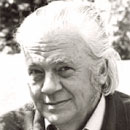 |
|
Ernst Friedrich SCHUMACHER
<All disciplines, no matter how specialized, are connected by a center; they are like rays emanating from the sun. The center consists of our core beliefs, those ideas that really have the power to move us. In other words, the center consists of metaphysics and ethics, ideas that transcend the world of facts.> |
|
|
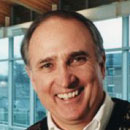 |
|
DAVID W. ORR
<I believe that educators must become students of the ecologically proficient mind and of the things that must be done to foster such minds. In time this will mean nothing less than the redesign of education itself.> |
|
 |
|
EDGAR MORIN
<It is no longer the time to complain about ecological disasters. Nor to imagine that the evolution of technology, alone, could remedy the situation. [...] We are faced with an ecological problem not only in our relations with nature, but also in our relations with ourselves.> |
|
|
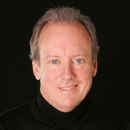 |
|
WILLIAM Mc DONOUGH
<If Thomas Jefferson were with us today, he would be calling for a Declaration of Interdependence which recognizes that our ability to pursue wealth, health, and happiness is dependent on other forms of life, that the rights of one species are linked to the rights of others...> |
|
 |
|
JAMES E. HANSEN
<As a society we face a stark choice. Move on to the next phase of the industrial revolution, preserving and restoring wonders of the natural world, while maintaining and expanding benefits of advanced technology. Or ignore the problem, sentencing humanity and other creatures to struggle on an increasingly desolate planet. > |
|
|
 |
|
DAVID T. SUZUKI
<All this that we know and believe must now become the foundation of the way we live.
At this turning point in our relationship with Earth, we work for an evolution: from dominance to partnership; from fragmentation to connection; from insecurity, to interdependence.> |
|
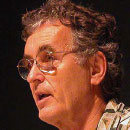 |
|
FRITJOF CAPRA
<We must recognize that the survival of humanity will depend on our capacity to understand principles of ecology and live and act accordingly. [...] The Earth is our common home, and thus, to create a sustainable world for future generations is our common task.> |
|
|
 |
|
NICHOLAS H. STERN
<The scientific evidence that climate change is an urgent issue is now compelling. It warrants strong action to reduce greenhouse gas emissions around the world to reduce the risk of very damaging and potentially irreversible impacts on ecosystems, societies and economies. With good policies the costs of action would be much smaller than the damage averted.> |
|
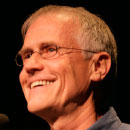 |
|
PAUL HAWKEN
<A common understanding is arising spontaneously from different economic sectors, cultures, regions, communities; it is growing and spreading worldwide without exception. [...] We know it as biologists, we know it from ecology: salvation is in diversity.> |
|
|
 |
|
AL GORE
<We, the human species, are confronting a planetary emergency –a threat to the survival of our civilization that is gathering ominous and destructive potential even as we gather here. But there is hopeful news as well: we have the ability to solve this crisis and avoid the worst – though not all – of its consequences, if we act boldly, decisively and quickly. > |
|
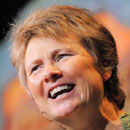 |
|
JANINE BENYUS
<While humans have a long way to go towards living sustainably on this planet, millions of species – each with nearly 4 billion years of field testing – contain technological ideas to help us succeed in our all-important quest to become a sustainable species on a biodiverse planet.> |
|
|
 |

